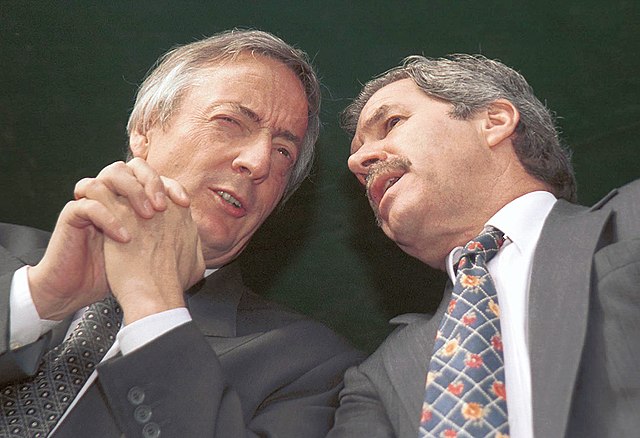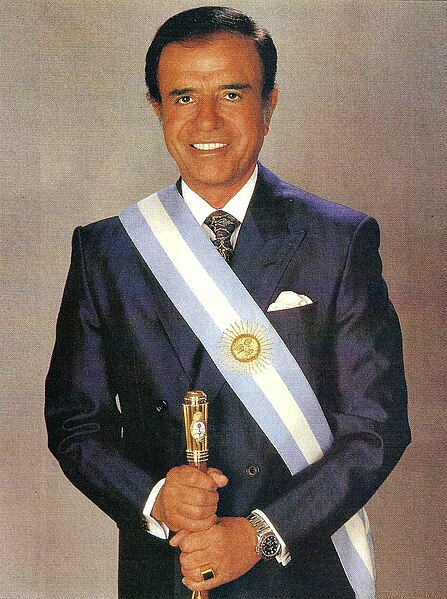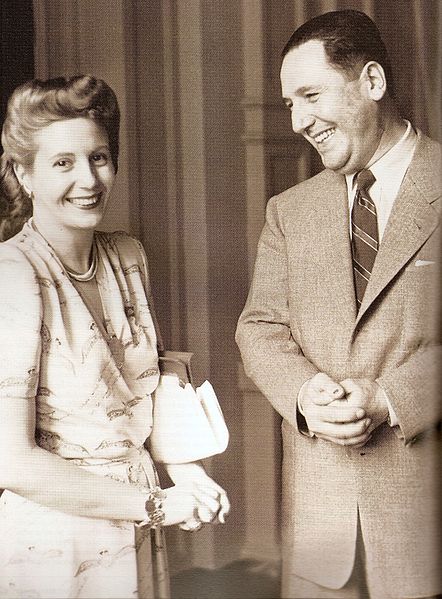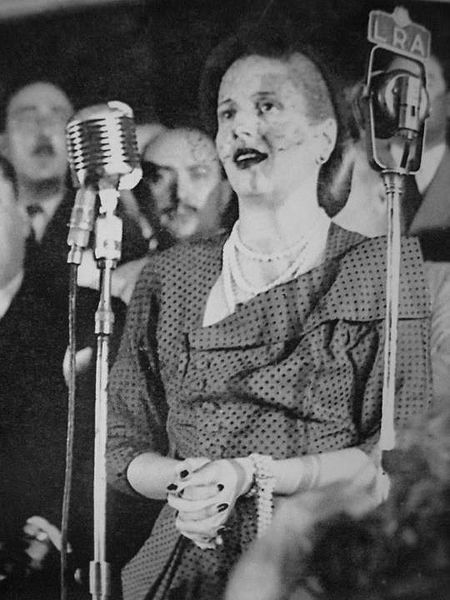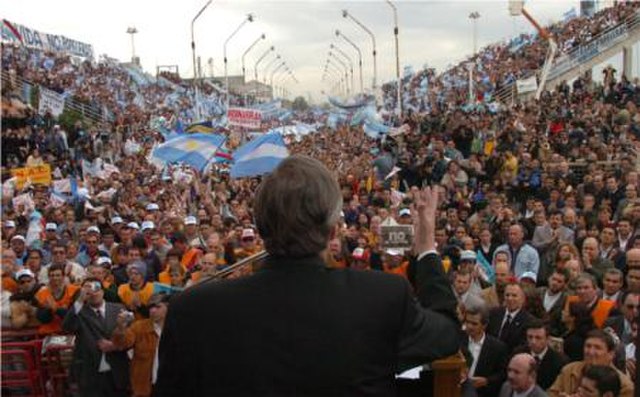Federal Peronism, also known as Dissident Peronism, is the faction or branch of either moderate, centrist or right-wing Peronism, that is currently identified mostly by its opposition to Kirchnerism, the left-wing faction of Peronism.
The endorsement of President Eduardo Duhalde was decisive in Néstor Kirchner's rise to power in 2003, and their later rivalry led Duhalde to form Federal Peronism.
President Kirchner confers with Buenos Aires Province Governor Felipe Solá. Solá's break with Kirchner during the 2008 export tax dispute was perhaps the most significant boost to Federal Peronism.
The 2007 Federal Peronist convention, in San Luis Province. Though dissident Peronism is active in most Argentine provinces, San Luis remains its stronghold.
Image: Menem con banda presidencial
Peronism, also known as justicialism, is an Argentine ideology and movement based on the ideas and legacy of Argentine ruler Juan Perón (1895–1974). It has been an influential movement in 20th- and 21st-century Argentine politics. Since 1946, Peronists have won 10 out of the 14 presidential elections in which they have been allowed to run. Peronism is defined through its three flags, which are: “Economic Independence”, “Social Justice” and “Political Sovereignty”.
Argentine president Juan Perón and first lady Eva Perón
Juan Perón is the central symbol in the Justicialist Party.
Eva Perón claims the female vote in 1947
Néstor Kirchner addressing a multitude at Gualeguaychú


